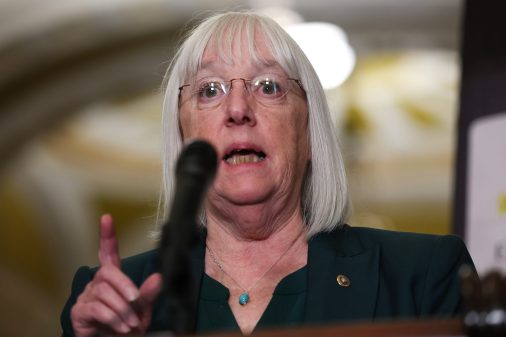Watchdog report ties veteran death to scheduling error in VA’s new electronic health record system

A scheduling error within the Department of Veterans Affairs modernized electronic health record system played a role in the 2022 death of a veteran in Ohio, the VA’s Office of the Inspector General charges in a new report.
A patient of the VA Central Ohio Healthcare System in Columbus with a history of behavioral health and substance abuse issues didn’t receive adequate outreach from the hospital system to reschedule a missed appointment due to “a system error in the functioning of the new EHR,” the report details. Just over 40 days later, the patient died an “accidental death” caused by “acute cardiac arrythmia ‘due to (or as a consequence of) acute toxic effect of inhalant.'”
The rollout of the VA’s EHR Modernization program has experienced a litany of issues since its launch in 2020, which led the department in April 2023 to pause the implementation of the new system at additional VA hospitals until it is deemed “highly functioning” and issues at first-adopter locations — like the hospital in Columbus — are resolved. That review is still ongoing.
The new inspector general’s report, released March 21, points to an error in the scheduling function that “resulted in staff’s failure to complete required minimum scheduling efforts following the patient’s missed mental health appointment,” the report says.
On the day of the missed appointment, staff at the facility followed standard operating procedures to call the patient and send a letter to reschedule. However, “staff did not complete the required three telephone calls on separate days,” as is VA policy for patients with mental health concerns, because in the new EHR system, the notification of the missed appointment “routed to a request queue and, as a result, schedulers were not prompted to conduct required rescheduling efforts.”
“The OIG concluded that the lack of contact efforts may have contributed to the patient’s disengagement from mental health treatment and ultimately the patient’s substance use relapse and death,” the watchdog wrote in the report.
However, the inspector general also attributes the case to other relevant incidents of mismanagement by VA staff, such as the failure to effectively evaluate and address the patient’s treatment needs and a lack of “caring communications” as required by the department’s Caring Communication Program. It also concluded that the hospital’s leadership failed to properly share lessons learned about what went wrong in the case.
This isn’t the only incident in which the VA’s new EHR Modernization program — developed by Oracle Cerner — has been tied to veteran deaths. In March 2023, Sen. Richard Blumenthal, D-Conn., disclosed during a Senate Committee on Veterans’ Affairs hearing six incidents of “catastrophic harm” to veterans, four of which resulted in deaths — one in Spokane, Washington, and the others in Columbus, Ohio. It’s unclear if the patient at the focus of the new OIG report is one of the three from Ohio that Blumenthal referenced.
Meanwhile, the VA inspector general released a pair of similar reports last week involving the Oracle Cerner EHR: one that calls out how “scheduling system limitations have caused additional work and redundancies” that could lead to an increased risk of scheduling errors, and another that highlighted “pharmacy-related patient safety issues nationally” due to a software coding error, as well as data transmission issues “that have affected approximately 250,000 new EHR site patients who received care at a legacy EHR site.”
In the latter case, the OIG concluded: “Affected patients have not been notified of their risk of harm and the OIG remains concerned for their safety.”






